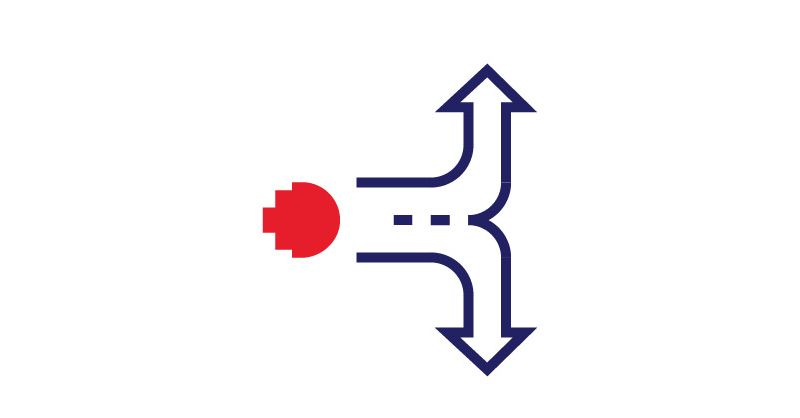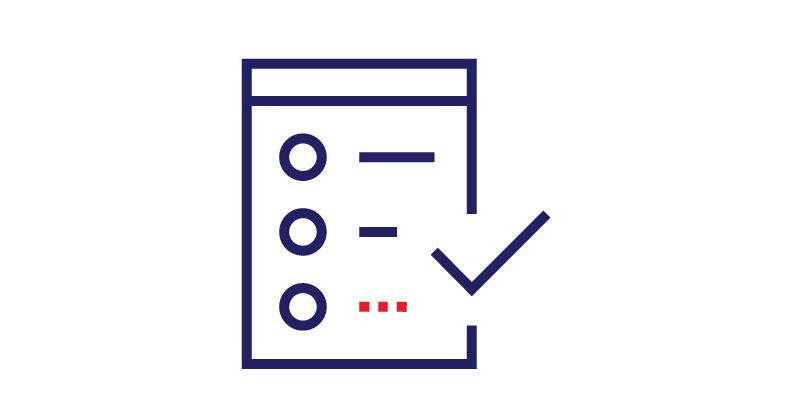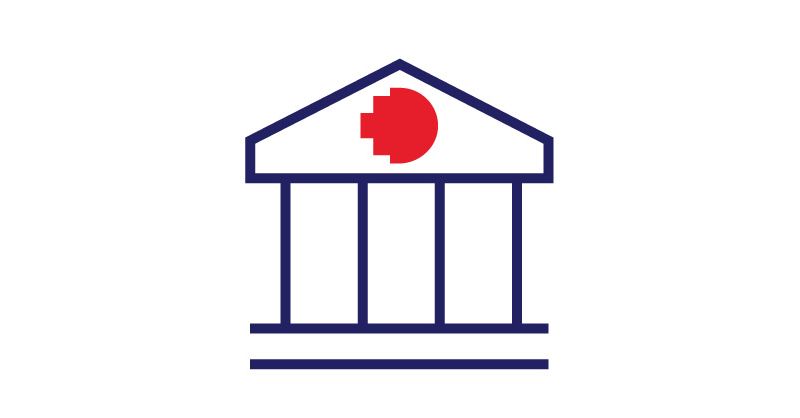Meet RMIT staff in your country
Browse events by country
Ask us about your study options at RMIT
Contact us with your enquiry
A quick guide to all the things you’ll need to organise before starting life as an international student at RMIT.
It's never too early to start planning your move to Melbourne! Here’s some information to get you started with your study abroad plans.



Before applying for your visa, you will need to have accepted your offer and received your Confirmation of Enrolment (CoE). After that, you can apply for your student visa.
All international students must have a visa to study at RMIT. Visa arrangements may take anywhere from a few weeks to six months to finalise depending on the assessment level of your country and other requirements set out by the Australian Department of Home Affairs.
Once you’ve received your student visa, you can start organising your flights!
Prior to departing your home country, you will need to keep up to date with Australia’s latest border policies on international arrivals, including vaccine requirements and Australian travel declarations.
Visit the Australian Government Home Affairs website the to find out the latest news and updates.
When booking flights, make sure you arrive with plenty of time to attend any registration or welcome sessions prior to your program’s commencement date.
Melbourne gets cold and wet in winter, with an average temperature of 14 degrees Celsius. Winter runs from June to August. It can also get hot in summer, with an average temperature of 25 degrees Celsius. Summer runs from December to February.
However, Melbourne is famous for having “four seasons in one day”. We can have very cold days in summer, and warmer days in winter. So, no matter what time of year you arrive, pack clothes and shoes for all seasons including some warm pullovers/jumpers, jackets and covered/rain-proof shoes.
Consider packing one formal outfit for any events or interviews you may need to attend. And if you wear glasses, don’t forget to pack a spare pair of glasses or contact lenses.
Most importantly, don’t forget to pack your passport with student visa!
Pack a folder with of a copy of your RMIT offer letter, acceptance letter and electronic Confirmation of Enrolment (eCoE), driver's license, birth certificate, emergency contact details, accommodation reference.
If you have a medical condition, talk to your doctor before you leave and ask if there is anything you need from them to ensure continuity of treatment (e.g., a referral letter outlining your treatment and medication details).
You will need your banking information and bank card, it’s also useful to have a small amount of cash with you. Have a think about what valuables you would like to bring such as jewellery, camera, laptop, mobile phone or iPad.
Before you move to Melbourne, you will need to organise your accommodation. There are many affordable accommodation options for international students in Melbourne. RMIT provides free services and resources to help you find somewhere to live that will suit your budget and preferences.
You also may want to consider temporary or short-term accommodation. This will enable you to become more familiar with the city and your surroundings so you can find long-term living arrangements that suits your needs, budget and requirements.
It’s important to enrol in your classes before you commence your studies at RMIT.
There are range of enrolment options depending on your program. Click the link below to refer to our International Student Enrolment webpage for detailed instructions on how to enrol into your program as an international student.
Once you’ve completed your enrolment, refer to our before semester starts checklist to ensure you’ve got everything ready to start your on-campus studies in Melbourne.
RMIT is pleased to provide newly arriving international students with a one-off Cabcharge Digital Pass for their airport-to-accommodation transportation. This is a single-use taxi voucher that covers up to AU$100 in travel costs.
You must have:
Submit your request one month in advance or at least five days before your arrival date. If you submit your request with less than one business day's notice before your arrival, the Cabcharge Digital Pass will not be issued.
In formal situations, it’s customary for people to shake hands when greeting each other.
People will usually introduce themselves to you by the name they prefer to be called. Australians usually prefer to be called by their first (given) name, including teachers and lecturers.
When you are in Australia, you must abide by Australian Federal and State laws. Specific laws apply against:
swearing or spitting in a public space
excessive noise in residential areas after 10pm and before 7am
smoking inside public venues and anywhere on an RMIT campus.
Bribery is not part of the Australian culture – it is illegal in this country and is not accepted by society.
When meeting someone for the first time, avoid topics about politics, relationships, sex, religion or financial income as they can be sensitive. These are personal topics that a person may not want to share with a stranger.
Topics that are okay to raise with new people include sports, films, music, hobbies, the weather etc.
In Australia it is illegal to discriminate against someone because of their race, gender, sexual orientation, disability, social, political or religious beliefs.
Racial vilification (slandering or defaming someone on racial grounds) is also illegal.
Women in Australia are independent and may discuss a variety of issues openly. Women are equal in Australian culture and should be respected as such.
If there is a crosswalk or crossing lights, use these to cross the road. Although it’s uncommon, you can be fined for not crossing at the lights especially in the city.
It is polite to say 'excuse me' when trying to get someone's attention, exiting a conversation, or when trying to get past someone.
Don't forget to say 'please' when you're asking for something and 'thank you' when you receive something.
Being on time is important in Australia, so make sure you check meeting times and places. Contact the person that you are meeting if you are running late or unable to make an appointment.
If you are late for a doctor or dentist appointment, you may have to pay a fee.
You must form queues and wait in line when waiting to purchase something, waiting to get in a bus or tram, waiting at a bank etc. It is considered impolite to push in front of someone who was waiting before you.
Australians value their personal space so you should not stand too close when waiting behind someone or talking to someone.
Place rubbish in rubbish bins. If there are no rubbish bins, you should carry the rubbish until it can be put in a bin. You can be fined for throwing rubbish on the ground (littering).
It is not rude to say 'no' to something you do not want. If you have been invited to go somewhere that you do not or cannot go to, say 'Thank you for the invite but I won't be able to make it'.
Do not feel pressured into drinking alcohol, taking drugs or having sex – it’s your right to say no if you don’t want to get involved.
Smoking is prohibited on public transport and inside any public venues, including restaurants, bars, cinemas etc. and you can be fined. Smoking is also banned on all RMIT campuses.
If you’re at someone's home, it is polite to excuse yourself and smoke outside.
Social functions such as barbeques (BBQs), dinners or parties are common and can be held in private homes, parks and restaurants.
BYO means 'bring your own' drinks or your own meat for a BBQ and will be indicated with the invitation.
When dining with a group in a restaurant, it is common for the cost to be split equally between each person in the group.
Tipping is not compulsory or expected. Australians tip only when they feel that the service they have received has been particularly good.
RMIT offers a huge range of study support, social activities and other services for international students to help you achieve your study goals, stay happy and healthy, and know there is support and assistance when you need it.
RMIT’s range of student support services include:
Pre-arrival support
Social programs, events and clubs
Study and English language support
Career and job support
Student Connect is a one-stop service for current RMIT students to get help with a range of queries and issues. Student Connect is located on campus and online.
Student Connect can help with topics related to:
Enrolment information
Courses or program
Fees or finance
Results and graduation
Timetables
Wellbeing, support and housing
And many more topics. You can browse their range of support categories, find answers or submit a query on the Student Connect website.
The Medical Hub @ RMIT is a medical practice situated in the centre of RMIT’s main City campus, currently open to RMIT students, RMIT staff and the general public.
The Medical Hub @ RMIT are open six days a week and offers GP services, vaccinations and various specialist health services. You can book your appointment online or by downloading their app.
Direct Billing to OSHC insurers is available to enrolled RMIT students with OSHC Insurance with Medibank, AHM or BUPA.
RMIT students with OSHC insurance not listed above will not attract an out-of-pocket fee but will be required to pay the rebate on the day of consultation and personally claim the full refund from their OSHC provider.
RMIT students must bring their RMIT Student card to every appointment for eligibility purposes only.
Browse events by country
Contact us with your enquiry
Acknowledgement of Country
RMIT University acknowledges the people of the Woi wurrung and Boon wurrung language groups of the eastern Kulin Nation on whose unceded lands we conduct the business of the University. RMIT University respectfully acknowledges their Ancestors and Elders, past and present. RMIT also acknowledges the Traditional Custodians and their Ancestors of the lands and waters across Australia where we conduct our business - Artwork 'Sentient' by Hollie Johnson, Gunaikurnai and Monero Ngarigo.
Welcome to RMIT - Study@RMIT
Live chat hours
For after hours assistance, submit your enquiry and we'll get back to you as soon as possible.
Social gatherings